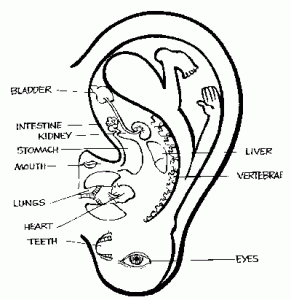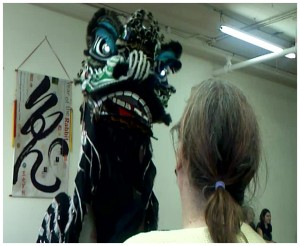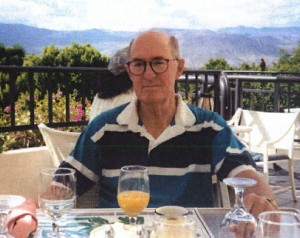 Take a moment to look outwards into the natural world. See the tree…watch the flower… observe the grass…feel the breeze. Notice how everything in nature does what it does naturally and peacefully. Peace is nature’s nature. It grows, blooms, decays and dies with peace, in peace. Even the elements are mostly peaceful by nature, until we decide to attempt to control and interfere with their balance and harmony. Now watch the actions of human beings. When they are not engaging with others, the vast majority act peacefully and express their nature, which is peaceful. Their nature finds expression in peaceful thoughts and peaceful actions. People, like nature, are essentially peaceful by nature! At the end of a busy day almost everyone goes home to do what? Sit, relax, and be at peace. We always return to our nature. It is nature’s way!
Take a moment to look outwards into the natural world. See the tree…watch the flower… observe the grass…feel the breeze. Notice how everything in nature does what it does naturally and peacefully. Peace is nature’s nature. It grows, blooms, decays and dies with peace, in peace. Even the elements are mostly peaceful by nature, until we decide to attempt to control and interfere with their balance and harmony. Now watch the actions of human beings. When they are not engaging with others, the vast majority act peacefully and express their nature, which is peaceful. Their nature finds expression in peaceful thoughts and peaceful actions. People, like nature, are essentially peaceful by nature! At the end of a busy day almost everyone goes home to do what? Sit, relax, and be at peace. We always return to our nature. It is nature’s way!
It’s easy to be cynical about peace. It is an idea that easily invokes images of hippies in the sixties when the ‘peace and love man’ movement was at its height. Right idea, wrong method. And then there is the peace which governments talk about before, during and after going to war to achieve peace. Wrong idea, wrong method. There is the ‘peace of mind’ that we are promised with the latest ‘product’, the most comprehensive insurance or the soundest investment. Clever idea, wrong intention and wrong method. And then there is the peace that already lives at the heart of our being, requiring only an accurate awareness of ‘the self’ induced by the practice of meditation and contemplation. Right idea, right method.
As long as there is no one making war with our nation or there is no noise in our neighbourhood, we might think peace reigns. But it doesn’t. Real peace is not a state of affairs in the world – it is a state of being within oneself. That last sentence would have been laughed out of court, so to speak, just fifteen or twenty years ago. No more, as we are collectively awakening to the realisation that peace of mind, or being at peace, is by far the most important ingredient in our life and that it does not come from anything or anyone ‘out there’. To be entirely responsible for one’s own peacefulness is not an easy idea. But it is an increasingly prevalent understanding that is growing in acceptance after two decades of books, seminars and teachers from the East, West, North and South travelling the world and reminding us that ‘its always me, not them’ that is making me peaceless!
The absence of peace in our life is demonstrated by the number of ways that we search, usually in vain, to alleviate the stresses and strains of modern living. If inner peace was present in our life we would likely travel less, eat less, shop less, work less, struggle less, talk less and think less. In some cases ‘less’ might, for short periods, become not at all! Such are some of the ways that we search for peace. It is a huge breakthrough moment when the penny drops, and we realise inner peace is generated from within and that no achievement or accumulation of anything ‘more’ from any source outside can induce it. It is also a moment when peace is recognised as the power in the engine of our life. It is the very ground of our being and just as buildings are only built on solid foundations so we cannot build a truly stable and happy life unless we find the power of our inner peace.
Here are just seven vital aspects of all our lives in which our effectiveness will depend on the quality of our inner peace.
Inner Peace as an UNSHAKABLE CALM
Staying calm when all around you would prefer to be in crisis and chaos is only possible when you are grounded in the power of your inner peace. Or do you get sucked into other’s dramas and dilemmas? Are you easily shaken by the emotions of others? Are your emotions easily triggered? Learning to stay connected to the power of your peacefulness, which is the power of your true nature, begins simply by reminding your self that peace is your natural state. You give yourself permission to be at peace regardless of what is happening around you. Maintaining that state then becomes a daily challenge which like any other challenge is mastered with practice and time.
Inner Peace as CONSCIOUS CREATIVITY
Life is relationship and every relationship is an opportunity to be creative. Every interaction requires your ability to create the most appropriate and effective response. We all know how hard it is to be creative, which means to respond and not react. When we are peaceless which means stressed or worried, it’s almost impossible to cultivate the clarity to see and create an effective response to others.
Inner Peace as SUSTAINED CONCENTRATION
Are you able to concentrate on one thing at a time? Are you easily distracted? Can you see what is distracting your attention? The ability to concentrate and focus is based on a peaceful state of being. Without the ability to concentrate, our performance at any task large or small will suffer.
Inner Peace as ACCURATE DECISIONS
What is life but a series of choices, until we reach the stage where we need to choose no more. That’s when the right thing to think, say and do becomes obvious and automatic. That’s when we are able to hear the voice of our inner tutor, our intuition, as it serves up the inner wisdom to see and do the right thing. Why can’t we hear our inner guide – could it be because there is too much inner noise of too many thoughts, too many mixed feelings, too many cravings, too many priorities and an absence of inner peace?
Inner Peace as PERSONAL POWER
Have you ever noticed what makes a person powerful, what attracts others to follow? It has little to do with position or status. Any power derived from these is soon lost the first time there is a loss of temper. Perhaps the key capacity that inspires others to follow is the ability to exercise great self-control. And the unacknowledged foundation of self control is inner peace. The absence of a peaceful mind means self control is impossible. The presence of peace in heart and mind ensures the leaders never lose the ‘emotional plot’.
Inner Peace as TRUE PURPOSE
Why are you here? What are you here to do? What might be your purpose in life? Are you here to be scared, stressed or just too busy for the most important person in your life, your self? Life will always have no purpose or meaning until you first know who and what you are. The flower knows it is a flower so it does what flowers do, a fish knows that it is a fish so it does what fish do, the cow knows it is a cow so it does what cows do. And each one does it with a peacefulness that allows it to pursue its true purpose.
Inner Peace as EFFECTIVE COMMUNICATION
Have you ever wondered why others seem to dump their stresses and strains, their angst and annoyances, their peacelessness, on you? Could it be because you have done, or are doing, something similar yourself? As you walk and talk, as you communicate and connect, you radiate energy into the world and into your relationships. Can you give the gift of peace to another? If you can it means you are living a peaceful life. It means you are at peace within your self. Sometimes, in order strengthen the foundation of our inner peace, we need to exercise our spiritual muscle by giving it away!
Try this today. Give the gift of peace to a friend, a colleague, a family member, a stranger. Watch for an emerging opportunity wherever you are, wherever you go, when someone loses the plot and raw emotion is on display. Then use the scene to practice your peace in the presence of their peacelessness. It may feel awkward at first, especially if you are accustomed to sharing anthers pain. But the moment that you do this with just a little love (not with an ‘aw, there there’ kind of patronising sympathy) you may experience a mini miracle within the situation. Your gift of peace gives the other both the power and the permission to stop hurting themself. And like a certain prophet of more ancient times you may be the instrument of a miraculous healing.
As you may have noticed, peace between beings in the world is becoming harder to find, and even harder to sustain. There are still relatively few who recognise a culture of peace in the world is dependent on the inner peace of the person. Global peace will always wait on the arrival of personal peace. The paradox of inner peace is it’s always already there within each and every one of us. We only need to take the time to look, to see it, to feel it, to know it and to be it. In the words of Oliver Wendell Holmes, “What lies behind us, and what lies before us, are tiny matters compared to what lies within us”
Question: Which of the above seven possible applications of inner peace do you need to develop in order enhance in your life today?
Reflection: What are three current habits which seem to sabotage your inner peace most often? Take a moment to reflect and write them down.
Action: Give the gift of the power of your peace to someone today and each day this week.
From: Healthy Mail – weekly message
 Auricular (ear) medicine is now proven to be effective for analyzing areas of problems, and treating the entire body from the external ear. It originated in China where medical workers charted more than 200 sites on the ear which showed direct correspondence to disease appearing elsewhere in the body. The techniques have also been developed in France and Germany over the past 50 years.
Auricular (ear) medicine is now proven to be effective for analyzing areas of problems, and treating the entire body from the external ear. It originated in China where medical workers charted more than 200 sites on the ear which showed direct correspondence to disease appearing elsewhere in the body. The techniques have also been developed in France and Germany over the past 50 years.



